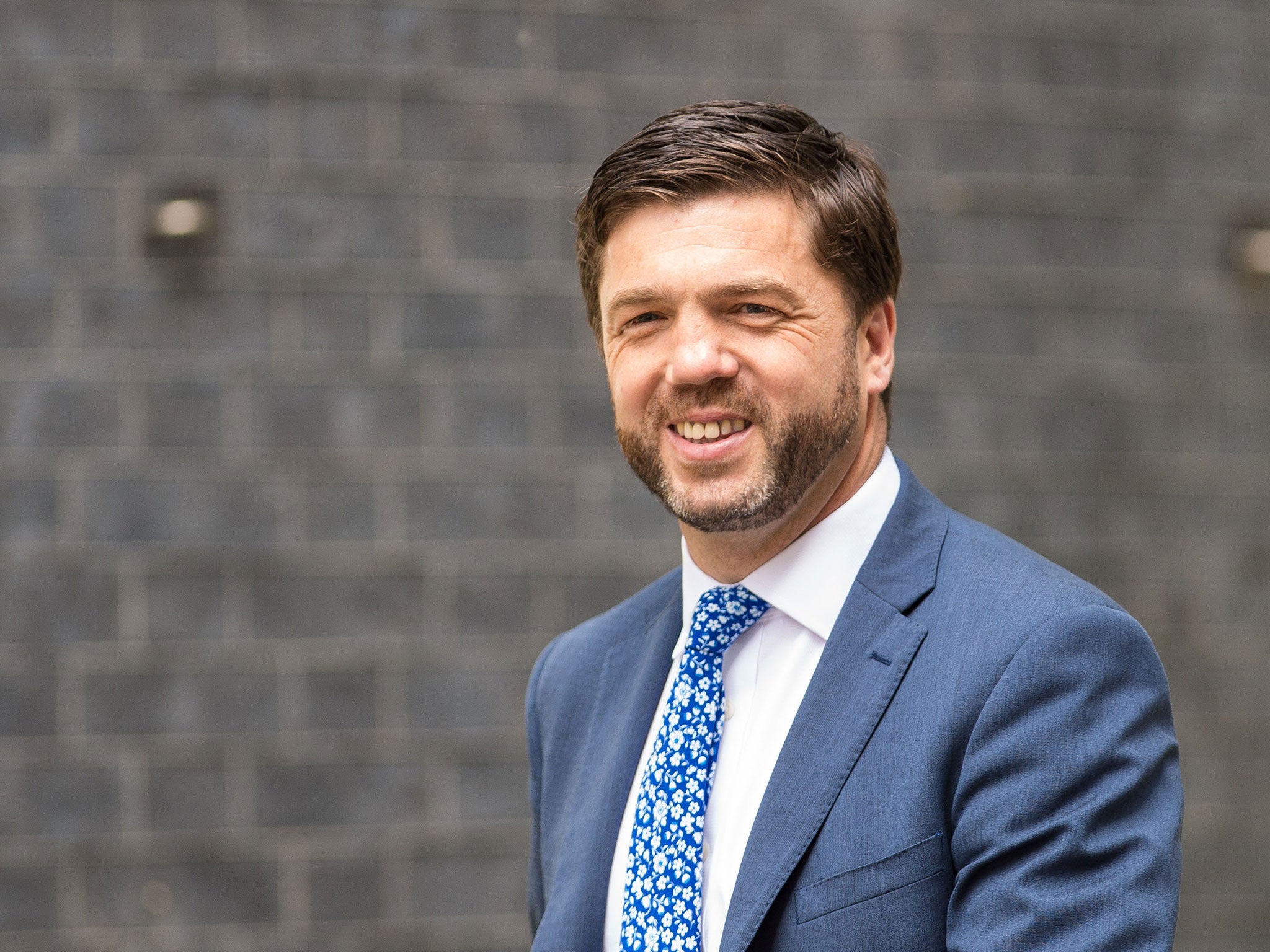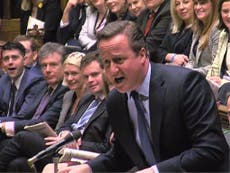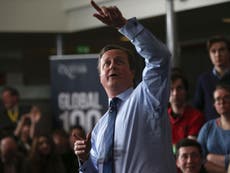The Tories might have found their antidote to the 'party of the rich' virus plaguing them
Crabb’s views have been shaped equally by his Christian faith and by being one of three boys brought up in a council house by their mother, who he once shielded from a knife attack by his abusive father


Forget David Cameron versus Jeremy Corbyn, or George Osborne versus John McDonnell. If you want to peek into the future of politics, take a look at the battle between Stephen Crabb, the Work and Pensions Secretary, and Owen Smith, his Labour shadow.
The two energetic forty-something Welshmen have escaped the Welsh Office brief, where they previously locked horns and where it is easy to get stuck if your seat is in Wales. Now they play in the premier league on welfare, and are both tipped as a future - or even the next - leader of their respective parties.
If you haven’t heard much about them, you are not alone. When Crabb made his first speech in his new job on Tuesday, his Department of Work and Pensions spelt his surname “Crabbe” when it was sent to journalists. But he is certainly well known among Conservative MPs. Shares in him have risen since Cameron’s personal wealth came under the spotlight following the Panama Papers leak. Some Conservatives see Crabb as the perfect antidote to the “party of the rich” virus which now afflicts the Tories again.
Crabb’s views have been shaped equally by his Christian faith and by being one of three boys brought up in a council house by their mother, who he once shielded from a knife attack by his abusive father. In a speech, Crabb described his mum Jacqui as an “amazing role model” whose understanding of the central importance of work “underpinned her own journey from a position of crisis and dependency to a position of economic independence.”
Such undoubtedly solid credentials will be tested to the full. Crabb took over when Iain Duncan Smith resigned last month with a spectacular parting shot, claiming that cutting working age benefits while protecting well off pensioners undermined the Tories’ “all in it together” mantra.
This week Crabb said Duncan Smith’s flagship but trouble-hit Universal Credit scheme, which is merging six working age benefits, would be “the spine that runs through the welfare system.”
There was a time when the Treasury, which has never liked Universal Credit, planned to strangle it whenever Duncan Smith departed the stage (as they knew he would because he had repeatedly threatened to quit). But times have changed; Osborne now needs Universal Credit to deliver the tax credit cuts he postponed last November.
Crabb promised to lead “a more coherent and collaborative government strategy” on poverty and social mobility – a signal that he is his own man and will stand up to the Treasury. That will be easier said than done.
One possible barrier to Crabb becoming Tory leader is that, while his heart was with the Outers in the EU referendum debate, his head told him to be loyal to Cameron and back In. Whatever the result, Eurosceptics are determined that Cameron’s successor will be an Outer. Tory members, who choose the leader, may agree.
The other barrier to Crabb reaching the top could be Smith, who was quick to point out that his real test is not speaking “warm words” but whether he halts the Universal Credit cuts already taking effect. Although the two rising stars josh when they lunch with different journalists in the same Westminster restaurant, they do not mince their words when attacking each other in public. Smith has described Crabb as a “smiling assassin”; Crabb has accused his opponent of “pantomime anger.”
Smith, who entered Parliament five years after Crabb in 2010, is a confident performer who is quick on his feet. He has deep Labour roots and is on the party’s soft left, the faction from which many of its MPs are convinced its next leader will come since there is unlikely to be a shift back to New Labour.
However, Smith is not the only potential soft left runner; at present, more money is being put on Angela Eagle, the shadow Business Secretary.
Smith’s decision to serve under Jeremy Corbyn upset some of the “refuseniks” who left the Shadow Cabinet when he became Labour leader. But it looks like a good career move, as party members may be more likely to elect someone who respected Corbyn’s mandate. However, critics claim the former BBC producer can be high-handed and so he might be less able than Crabb to win friends and votes in a future leadership contest.
What makes Crabb versus Smith interesting is that probably only one of them will lead their party. To climb the long ladder, they both need to outshine their great rival in their current post. In this dogfight, there can be only one winner.



Join our commenting forum
Join thought-provoking conversations, follow other Independent readers and see their replies